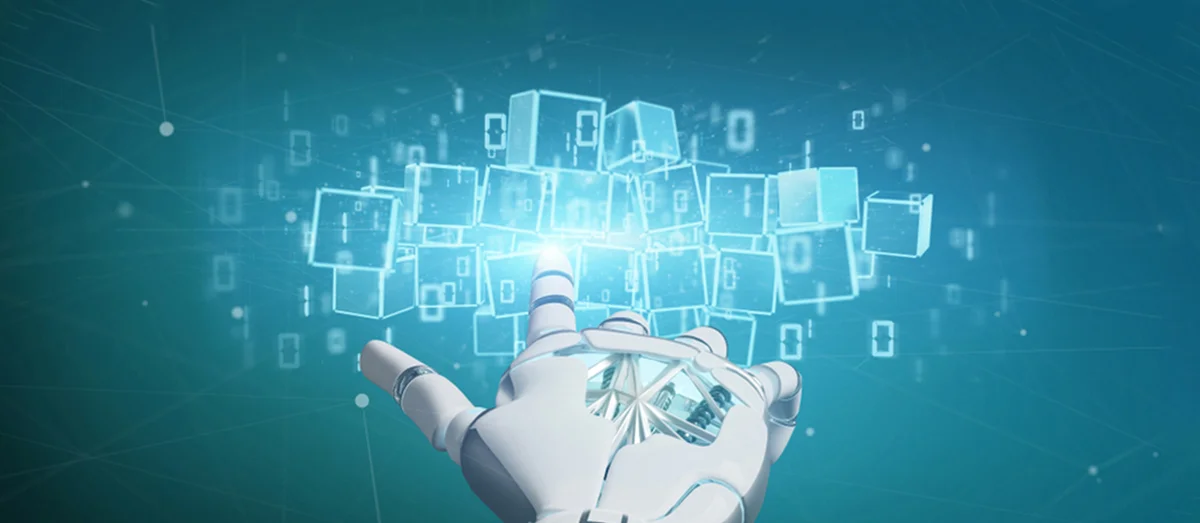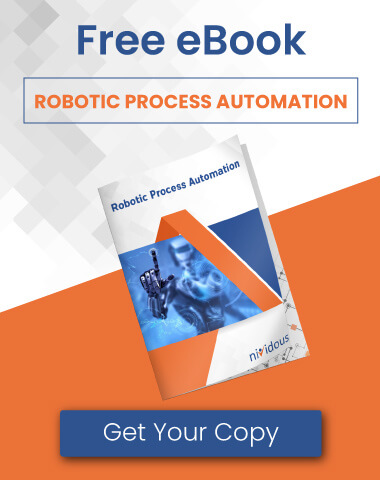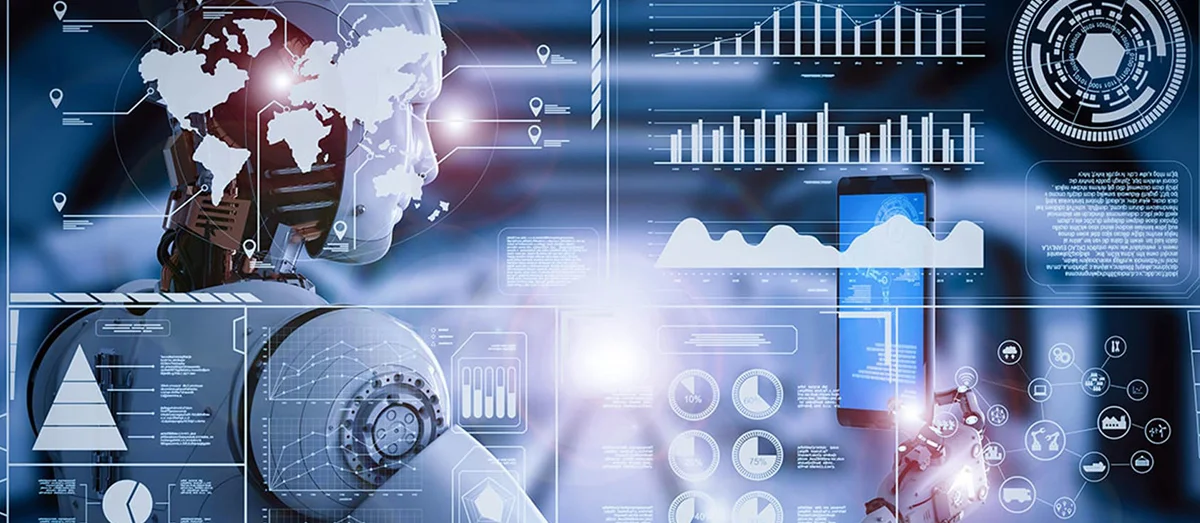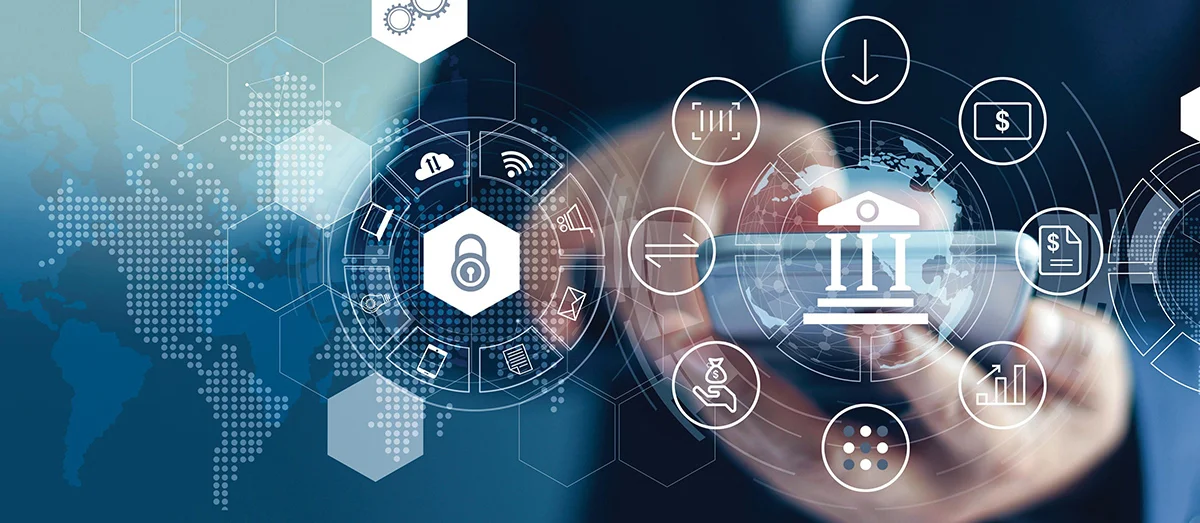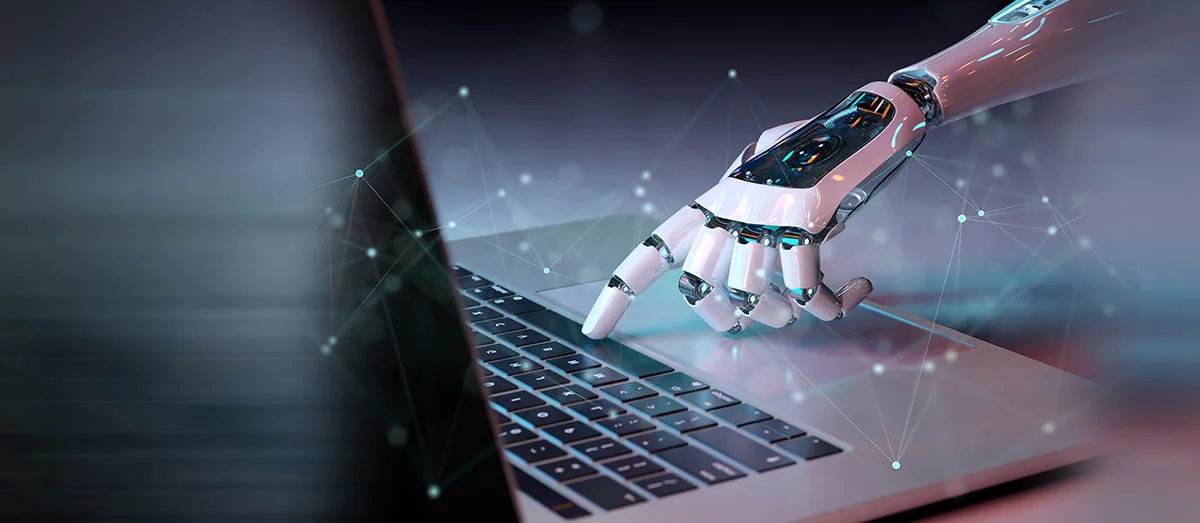Today, Robotic Process Automation (RPA) technology is reliably used by businesses across industries to automate simple to sophisticated business processes. Companies are confident in its fast and accurate automation capabilities because they are realizing high returns within a relatively short time. Blockchain provides an indisputable and secure ledger which is used for maintaining a permanent and a tamper-proof record of transactional data along with a platform for smart contracts (code that runs immutably and autonomously). The Blockchain market is projected to reach between $2 trillion to $3 trillion by 2030 as per Gartner. Numerous start-ups and industry players have already invested heavily in pilot programs to evaluate the potential benefits of Blockchain technology.
A brief overview of RPA and Blockchain
RPA-enabled software robots, also known as digital workers, have progressed from simple rules-based, high-volume business processes to more complex processes that otherwise require human intelligence. The introduction of Artificial Intelligence (AI) / Machine Learning (ML) into RPA has enabled automation using non-structured data and visual perceptions, as well as much more sophisticated decision-making processes. When combined with human workers for exception handling and review, there are very few business processes that cannot benefit from RPA.
Blockchain has evolved from its original manifestation with bitcoin to an independent technology that provides secure and trusted transactions. There has been a shift in the blockchain space this year although most current production implementations do not fully leverage the capabilities of the technology. Blockchain technology can enable things previously impossible and can help to create ecosystems for a network of trading partners. Through smart contracts, it can enable automation across corporate boundaries. Common use cases for blockchain include records management, asset tracking, transactions management, payment processing, claims processing, legal ownership management and the tokenization of physical assets.
The combination of Blockchain and RPA can deliver benefits beyond what they can deliver independently. Let’s examine some potential business use cases that focus on leveraging RPA and Blockchain together.
Business use cases integrating RPA and Blockchain
Both RPA and Blockchain debuted in the financial industry, but use cases have now been identified in many other industry sectors such as insurance, retail, supply chain, healthcare, utilities, and government.
Compliance management:
RPA Bots automate repetitive tasks related to compliance for regulatory flows. Blockchain can be used to create an immutable record of all the regulatory events such as customers’ data preferences for GDPR, which can be accessed in the future for external or internal audits.
Automated and trusted data processing:
RPA Bots automate processes interacting with both end-users and systems to capture/process data such as orders and documents. Blockchain can provide a secure ledger to record business transactions for automated decisions e.g., payments processing, information verification, identity management. Some use cases across industries: Know-your-customer (KYC) processing in banking and finance, payment processing for insurance claims, peer-to-peer landing, rewards points management in the hospitality industry, HR recruitment.
Trade and contracts:
RPA Bots sort the information from different contracts into databases. Blockchain aids in this transaction by not only helping with the transitioning of information but automating the overseeing of the document. When both parties have signed, and all conditions of the contract are met, blockchain technology recognizes it and allows access of the official document to both parties, securely. The technology in blockchain protects against copyrighting by recording original ownership, backed-up by trustless identity management.
Supply chain management:
RPA can free up employees by automating tasks related to inventory management. Blockchain upholds the ethical background of the company timestamping products to show their history and manufacturing background. Companies can easily prove their standards for quality as promised, allowing them to build trust between the consumer and the company. Combined with automated warehousing, invoicing and payments can become provable and rule-based.
File and data storage:
While AI-enabled RPA Bots can move data from one format to another within a system, the blockchain decentralizes the indexing of the storage system. With a decentralized storage system (IPFS for example), files cannot be lost or hacked, when a central system fails. Additionally, it unclogs a system backlogged with data by spreading the information across thousands of servers. The resultant easy data access helps in accelerating back-office procedures.
Though blockchain is mainly used for currency exchanges and transactions, it has unmatched potential in the ability to enhance back office data transactions. There are many more processes which can benefit from the use of blockchain and RPA technologies which we will explore.
To learn about more business use cases that combine RPA and blockchain technologies, register for our on-demand webinar.

